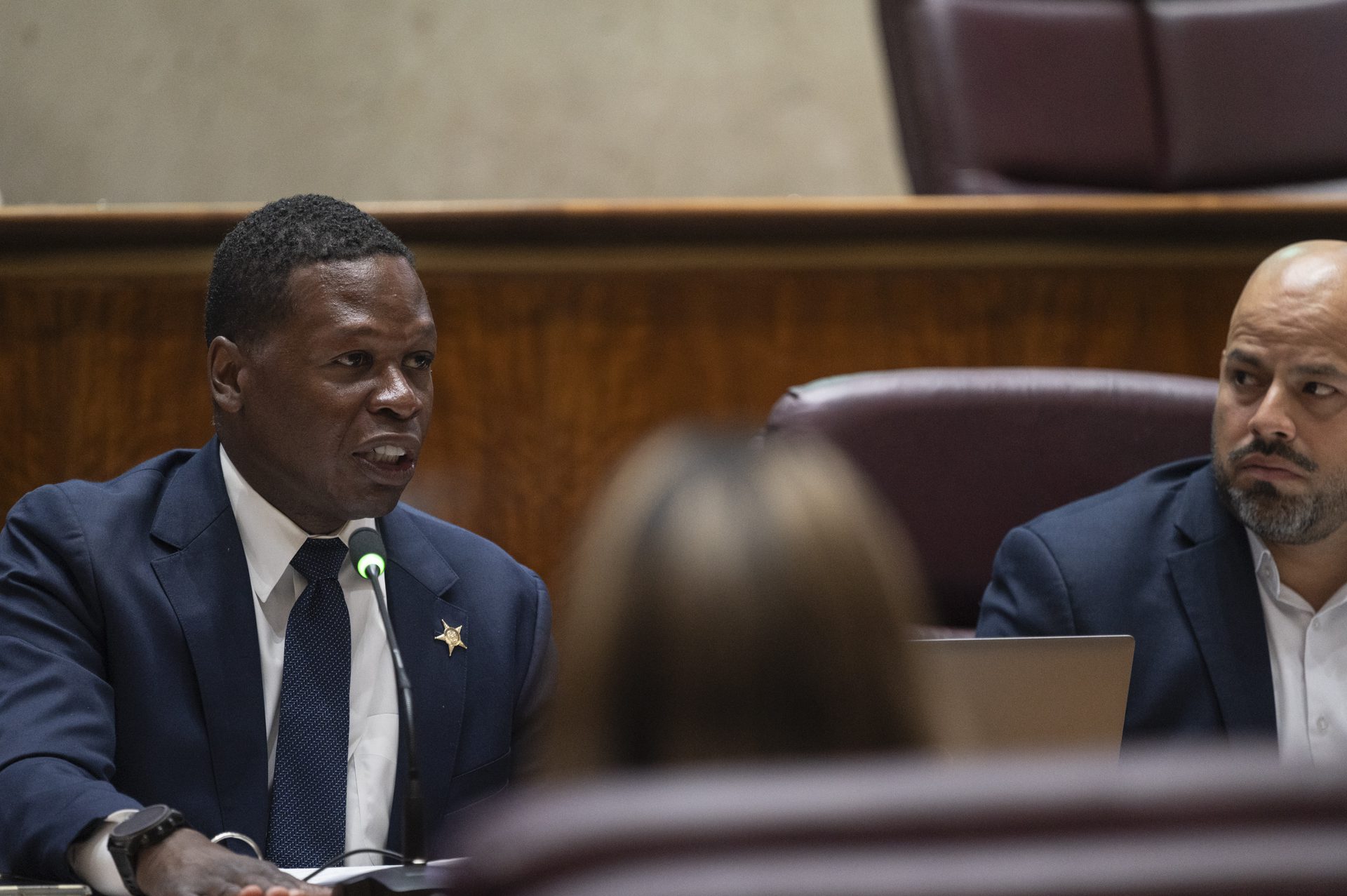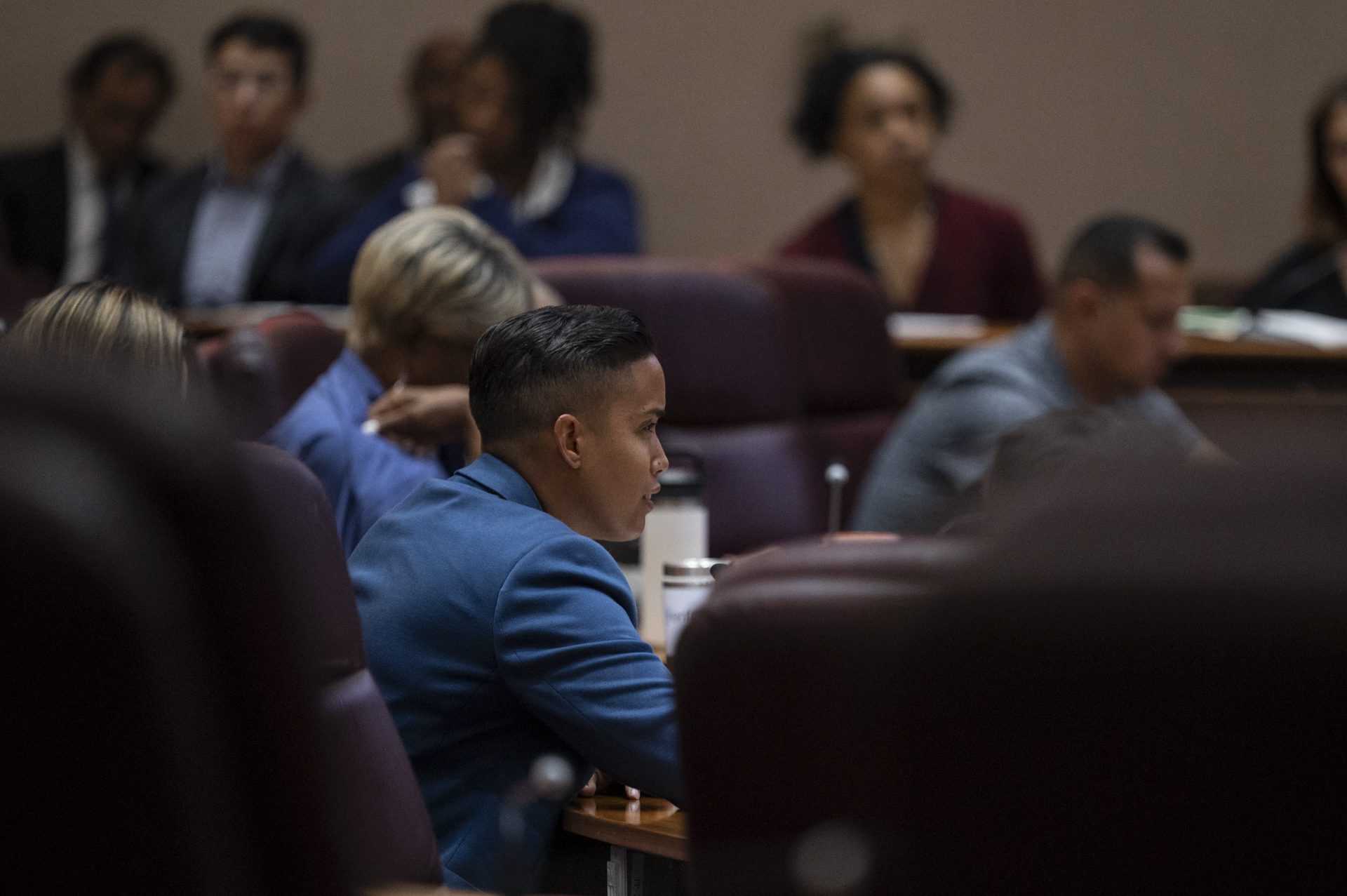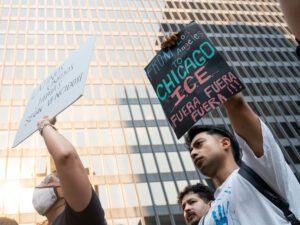 Max Herman/Borderless Magazine
Max Herman/Borderless MagazineChicago’s Immigrant Committee held a hearing Tuesday, questioning CPD and other city officials about whether city police collaborated with ICE during mass arrests in the South Loop.
The Chicago City Council’s Committee on Immigrant and Refugee Rights held a hearing Tuesday on the police department’s presence at U.S. Immigration and Customs Enforcement (ICE) arrests in South Loop last month.
On June 4, ICE detained at least 10 people showing up for a check-in outside an immigration facility that operates the Intensive Supervision Appearance Program, which monitors individuals in immigration proceedings without detention.
News of the arrests prompted protests involving immigration activists, residents and alderpeople.
News that puts power under the spotlight and communities at the center.
Sign up for our free newsletter and get updates twice a week.
Committee staff said they witnessed city police blocking off streets, appearing to stand guard for ICE vehicles and accompanying ICE agents in and out of the building.
At Tuesday’s meeting, the committee passed an ordinance introduced by Ald. Andre Vasquez (40th), committee chair, in response to police presence during the ICE arrests and protests.
The ordinance, set for a city council vote July 16, calls for the Office of Emergency Management and Communications (OEMC) and the Mayor’s Office to turn over all data and communications related to police presence at the June 4 arrests to determine whether they violated the Welcoming City ordinance.
The Welcoming City ordinance limits CPD from collaborating with federal immigration enforcement operations, including providing on-site support to assist a civil immigration enforcement operation and disclosing information regarding immigration status.
“What happened on June 4th, I believe, is a learning opportunity for us to examine the CPD protocols and make sure that we are following our city’s laws and values as we continue to weather these attacks from ICE and from President Trump,” said Vasquez at the hearing.
Alderpeople called for bodycam footage, transcripts of the 911 calls that triggered police deployment for review and better enforcement measures to uphold the city’s Welcoming City ordinance.
Read More of Our Coverage
CPD Director of Community Policing Glen Brooks contended at the hearing that the department did not collaborate with ICE that day.
However, Brooks said police officers did arrive at the scene and entered the building, not knowing it was an ICE office. He said they stepped outside when they realized it was and stayed for crowd control.
“Given that the large crowd gathered outside was spilling into a very busy arterial street, CPD remained on scene to ensure the safety of everyone in the area, including those who are outside the building, exercising their First Amendment right,” said Brooks.
Ald. Jessie Fuentes (26th) questioned whether aggression from ICE officers could prompt CPD to intervene to protect residents’ safety. Brooks said that CPD has no authority to discern ICE’s use of force and cannot interfere with federal law enforcement efforts.
The hearing comes amid a wave of federal immigrant enforcement, including courthouse arrests of immigrants in Chicago after their cases were dismissed.
The escalated enforcement activity by ICE is part of President Donald Trump’s immigration agenda that aims to conduct at least 3,000 daily ICE arrests, which has prompted demonstrations in Chicago and nationwide calling for an end to mass deportations.

The committee said that, as of Tuesday, it knew of no independent investigation into whether CPD violated the Welcoming City ordinance on June 4. However, the mayor’s office is conducting an internal investigation into the incident, according to Beatriz Ponce de León, Deputy Mayor of Immigrant, Migrant, and Refugee Rights.
Committee members questioned city officials on why an independent investigation hasn’t begun almost one month after the arrests, and which agency should be responsible for such an investigation.
Officials from the Office of Inspector General and OEMC said the issue does not fall under either agency’s jurisdiction. The committee and city officials were unable to determine when an independent investigation would take place and who would conduct it.
“That is disheartening,” said Fuentes.
Vasquez said the committee will hold another meeting on July 24th.
Aydali Campa is a Report for America corps member and covers environmental justice and immigrant communities for Borderless Magazine. Send her an email at [email protected].


